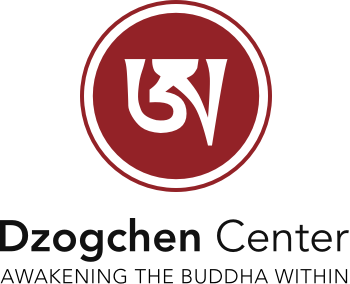Policy Against Discrimination and Harassment
1. Overview1.1 Dzogchen Foundation, Inc. is a registered 501(c)(3) charitable organization recognized as a church with Employer Identification Number 04-3162342. Dzogchen Foundation is doing business as “Dzogchen Center.” Dzogchen Center (or “the Center”) is committed to making the unique and powerful Tibetan practice of Dzogchen accessible to Westerners through individual and social forms that are welcoming, contemplative and amenable to practice by persons of all religious, cultural, class, color, sexual orientation, financial and/or educational backgrounds. Dzogchen Center is committed to extending its values to its working environment and relations so that everyone is treated with decency and respect, and expects its Personnel (which includes the Center’s teachers, management, board of trustees, employees, and (paid and unpaid) staff), as well as its Attendees (which includes students and retreat participants), partners and collaborators, to also be committed to the core values of integrity, honesty, fairness, openness, respect, compassion, and responsibility. 1.2 The Dzogchen Center Policy Against Discrimination and Harassment (“the Policy”) covers Personnel, Attendees, partners and collaborators at events sponsored by the Dzogchen Center, including practice groups approved by the Dzogchen Center. Authorized Dzogchen Center practice groups and events are posted to the Dzogchen Center website. 2. Personal and Professional Integrity2.1 Dzogchen Center is committed to providing a safe, comfortable, peaceful, and productive work and retreat environment, free from unlawful discrimination and harassment, including sexual harassment, and to taking all reasonable steps to prevent it and to address it. 2.2 Dzogchen Center as an organization, and by extension all Dzogchen Center Personnel affiliated with the organization, are expected to adhere to the highest ethical standards in pursuing our work and in our standards of conduct. Dzogchen Center Personnel shall act with honesty, integrity and openness in all their dealings, remembering they are representatives of the organization. Please refer to Dzogchen Center Code of Ethics. Dzogchen Center’s Attendees, partners and collaborators are also expected to adhere to these standards in activities with Dzogchen Center. 2.3 Personnel found to have violated this policy shall be subject to disciplinary action up to and including suspension and termination of employment, or volunteer status. The working relationship and/or contract with Dzogchen Center may be terminated for any Attendees, partners, collaborators, or anyone else affiliated with Dzogchen Center found in violation of this Policy (see section 9 below). 3. Non-Discrimination3.1 Dzogchen Center and its Personnel, Attendees, partners and collaborators shall not discriminate on the basis of age, race, color, ethnicity, national origin, gender (including pregnancy, childbirth or medical conditions related to pregnancy or childbirth), gender identity or expression, sexual orientation, religion, class, physical or mental disability, medical condition, genetic information, marital status, or any other characteristic or status protected by applicable law. 3.2 “Discrimination” is defined as adverse treatment based on belonging to one of the categories described above, rather than on the basis of the person’s individual merit, with respect to the terms, conditions, or privileges of employment, study or retreat. This includes, but is not limited to hiring, firing, promoting, disciplining, scheduling, supervising, training, volunteering, or teaching. 4. Harassment4.1 Dzogchen Center believes that all of its Personnel and Attendees have an unconditional right to work, retreat, practice meditation, pray and study in an environment free from harassment. Except where otherwise indicated, the term “harassment,” is defined as unwelcome conduct directed toward, or differential treatment of, another that is personally offensive, intimidating or hostile, is disruptive, or interferes with work performance, study, meditation practive or the retreat experience, regardless of whether it rises to the level of violating the law. In other words, an open and welcoming environment requires that this policy defines prohibited harassment more broadly than does the law. 4.2 Dzogchen Center prohibits harassment of any kind, and will take appropriate and immediate action in response to complaints or knowledge of violations of this Policy. This includes harassment based on age, race, color, ethnicity, national origin, gender (including pregnancy, childbirth or medical conditions related to pregnancy or childbirth), gender identity or expression, sexual orientation, religion, class, physical or mental disability, medical condition, genetic information, marital status, or any other characteristic protected by applicable law. 5. What is Sexual Harassment? 5.1 Sexual harassment includes sexual advances, requests for sexual favors, and verbal or physical conduct of a sexual nature when submission to such conduct is either (a) explicitly or implicitly made a term or condition of employment, or (b) is used as the basis for employment decisions, or when such conduct has the purpose or effect of unreasonably interfering with an individual’s work performance or creating an intimidating, hostile, or offensive work or study environment. 6. Forms of Harassment6.1 Harassment may take many forms, including the following conduct when based on the protected characteristics described above: Verbal. Derogatory comments, slurs, or name-calling; inappropriate jokes, emails or any other form of written communication, comments, noises, or remarks; repeated requests for dates, threats, propositions, unwelcome and persistent unwanted correspondence, phone calls, and gifts; or other unwelcome attention. Physical. Assault; impeding or blocking movement; physical interference with normal work or movement; unwanted and unwarranted physical contact, such as touching, pinching, patting, grabbing, brushing against, unwanted entering into the room of Personnel or Attendee, or poking another person’s body. Visual. Abusive or patently offensive images (whether in photographs, posters, cartoons, drawings, paintings or other forms of imagery); displaying abusive or patently offensive images, writings or objects; ogling, staring at or directing attention to an employee’s anatomy; leering; sexually oriented or suggestive gestures. Cyberstalking. Unwanted electronic communication, such as e-mail, WhatsApp, Facebook, texting or instant messaging, or messages posted to a website, blog, or discussion group. 6.2 Harassment can occur in one-on-one interactions or in group settings and can involve a co-worker, supervisor, student, Attendee, or collaborator of the organization. Sexual harassment can also occur in the context of a relationship that was once consensual but has changed so that the behavior is no longer welcome by one party. It is impossible to specify every action or all words that could be interpreted as harassment. The examples listed above are not meant to be a complete list of objectionable behavior. Dzogchen Center Personnel should pay attention to others’ reactions and stated requests and preferences, respecting their wishes, and treat everyone with respect, regardless of age, race, color, ethnicity, national origin, gender (including pregnancy, childbirth or medical conditions related to pregnancy or childbirth), gender identity or expression, sexual orientation, religion, class, physical or mental disability, medical condition, genetic information, marital status, or any other characteristic protected by applicable law. 6.3 The prohibition against harassing conduct as defined in this Policy includes harassment by Personnel against Attendees and by Attendees against Personnel. Conduct by Personnel against Attendees, and by Attendees against Personnel in violation of section 6.1 will be acted upon promptly and may result in discipline of Personnel and/or termination of an Attendee’s relationship with the Dzogchen Center (see section 9 below). If an Attendee experiences genuine psychological difficulties, Personnel will attempt to assist but it may be necessary to contact their emergency contact person and ask the Attendee to leave the retreat or event. 7. Reporting and Investigating Proscribed Discrimination and Harassment7.1 If you are comfortable doing so, you are encouraged to attempt to resolve any grievance directly with the individual or individuals responsible for the action or behavior that gives rise to your grievance. The individual(s) may not realize the action or behavior is objectionable and a simple communication may effectively end the unwanted behavior. 7.2 If you are not comfortable engaging in such communication or if the behavior does not stop following such communication, you have a responsibility to immediately report the matter first to the Retreat Manager, and then if necessary, to the attention of the Community Council, which can be reached on a confidential basis at CommunityCouncil@dzogchen.org. Personnel and Attendees should refer to the Dzogchen Center Grievance Policy for details about this process, which is available at https://www.dzogchen.org/Our-Community-Policies. 7.3 Dzogchen Center Personnel and Attendees are encouraged to report harassing or discriminatory conduct as soon as you become aware of such behavior. All allegations of harassment or discrimination will be investigated in a timely, objective, and thorough manner as confidentially as possible, in accordance with the Dzogchen Center Grievance Policy. That policy is available at https://www.dzogchen.org/policies. All Personnel and Attendees are expected to cooperate fully in any investigation. If it is determined that prohibited harassment or discrimination has occurred, appropriate corrective action, up to and including suspension or termination of the offending employee(s), and terminiation of an Attendee’s relationship with the Dzogchen Center will be taken along with any additional steps necessary to prevent further violations of this Policy. 8. Protection Against Retaliation8.1 Dzogchen Center Personnel and Attendees can freely report any allegations of discrimination or harassment, including sexual harassment, without fear of reprisal from the Dzogchen Center. 8.2 “Retaliation” is any adverse action taken against an individual because they reported a charge of discrimination or harassment. Examples of retaliation include termination, demotion, refusal to promote, harassment or inappropriate comments that create a hostile work or retreat environment, or any other adverse action that would discourage a reasonable person from opposing perceived discrimination or harassment. 8.3 Dzogchen Center will not tolerate any form of retaliation, including hardship, loss of benefit or penalty against any Personnel or Attendee who opposes discrimination or prohibited harassment, makes a complaint, or participates in any manner in an internal investigation or an investigation, proceeding, or hearing conducted by a governmental agency or court. If you believe that you have experienced or witnessed retaliation, you should immediately report your concern to the Community Council. Any Personnel, who engages in retaliation will be subject to disciplinary action, up to and including termination of employment, as well as possible legal consequences. 9. Complaints Against Attendees, Partners and Collaborators9.1 Dzogchen Center reserves the right to terminate its working relationship and/or contact with any Attendee, partner, collaborator, volunteer or other affiliate who has been found to be in violation of this Policy. In the case of Attendees, they may be prohibited from coming to future Dzogchen Center retreats or other events. 9.2 Dzogchen Center will notify the Attendee(s) or individual(s) associated with a partner, collaborator or affiliate of any complaint filed against them under this Policy and investigate the matter pursuant to the Dzogchen Grievance Policy and any other policies. As part of the investigation, Dzogchen Center shall meet in person or by phone with the individual(s) implicated, notify them of the charges against them and allow them a fair and reasonable opportunity to explain their perspective. 9.3 As soon as practical, based on the investigation and timeline pursuant to the Dzogchen Center Grievance Policy, Dzogchen Center will write to the subject of the complaint with its decision on what action, if any, it will take with respect to the complaint, including termination of the working relationship. If it deems necessary, Dzogchen Center will notify the leadership of the partner or collaborator organization of its decision with respect to the complaint filed. |

© Copyright 2024 | All Rights Reserved Dzogchen Center
|
